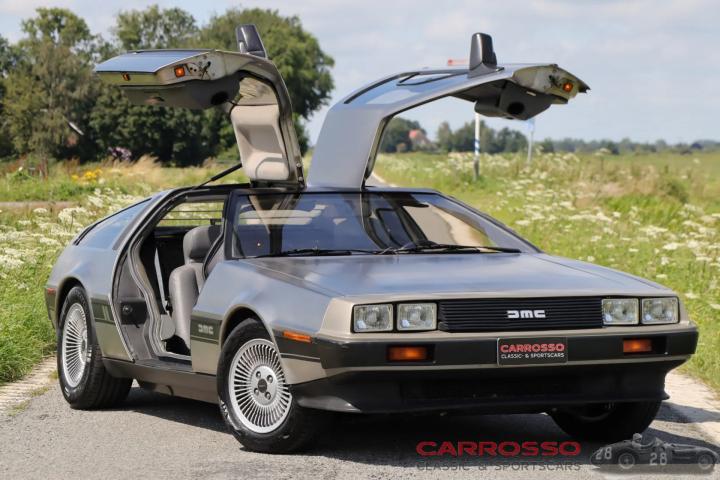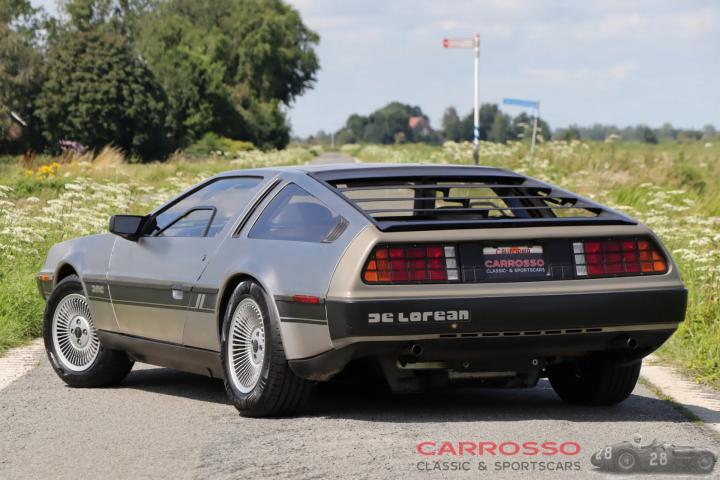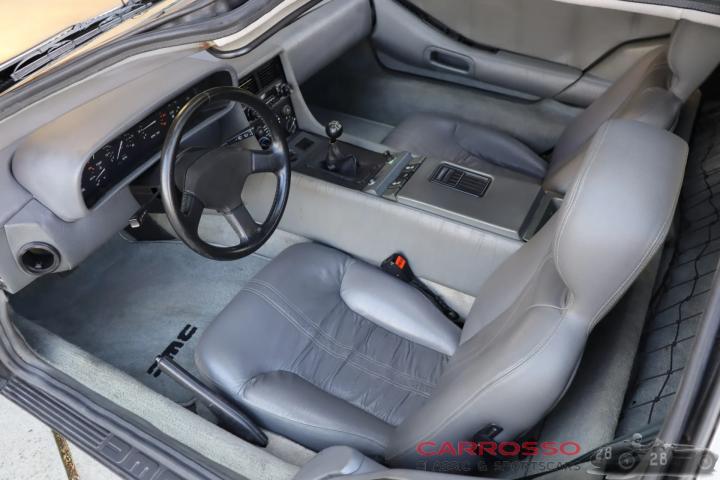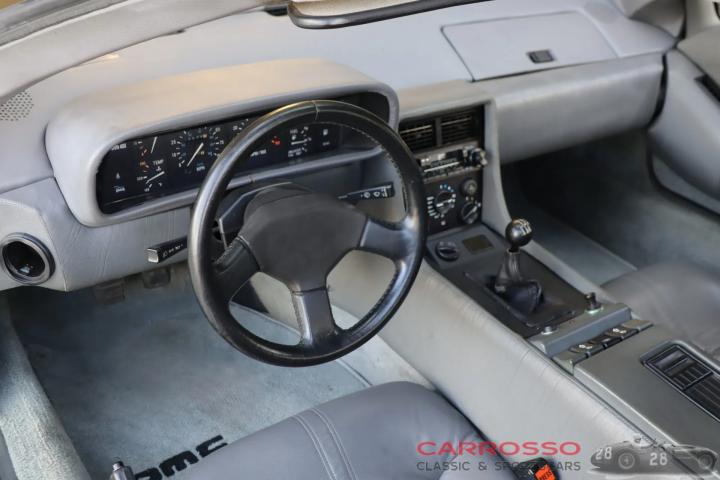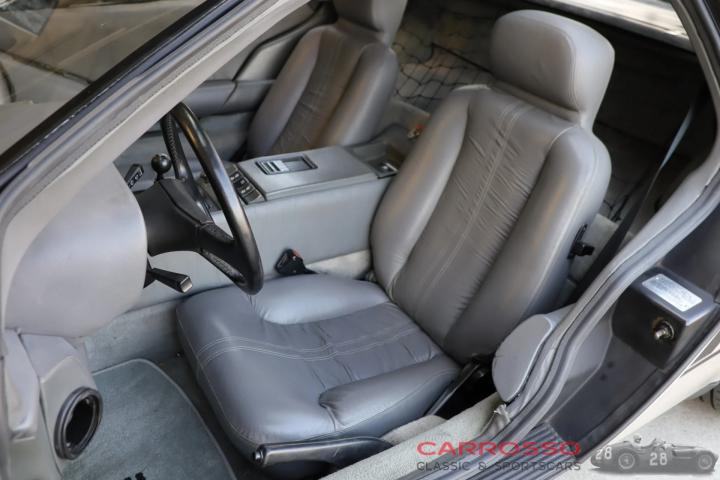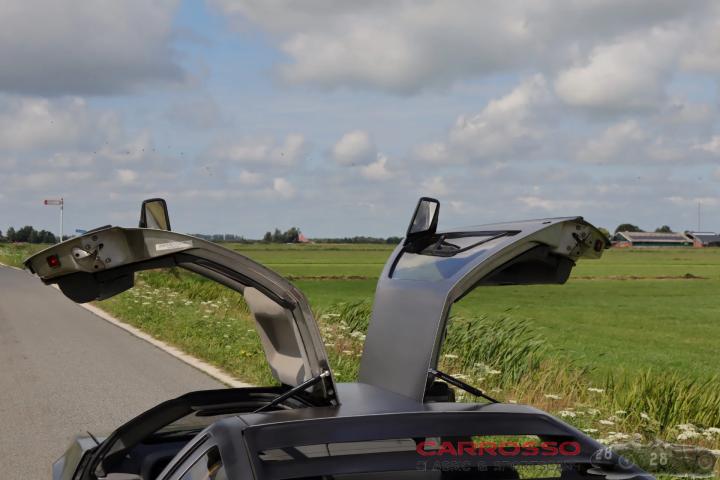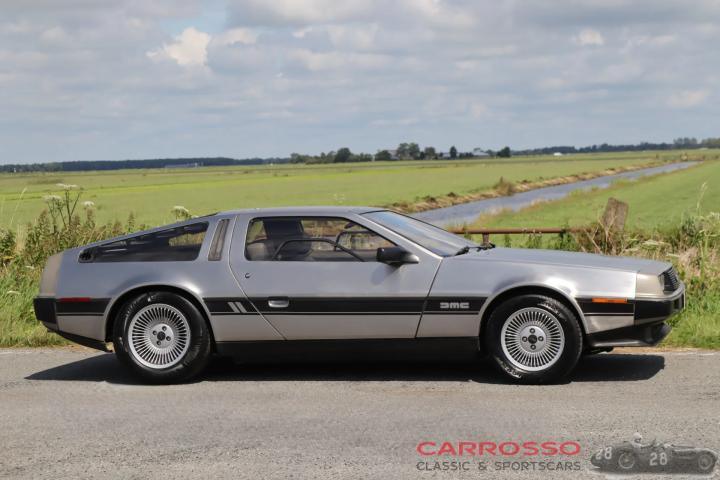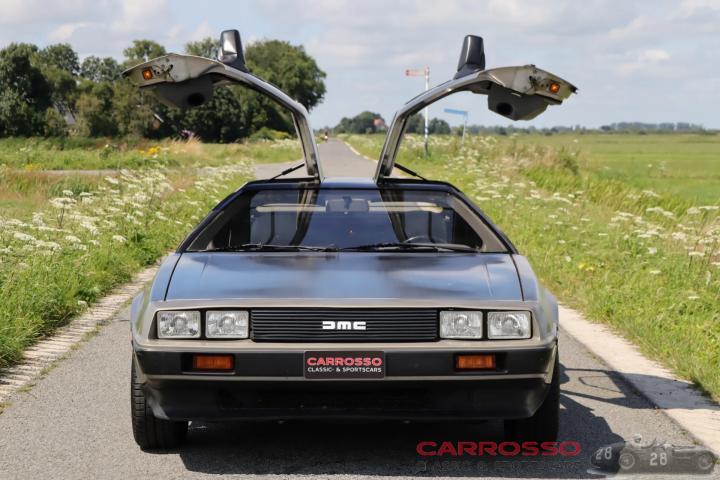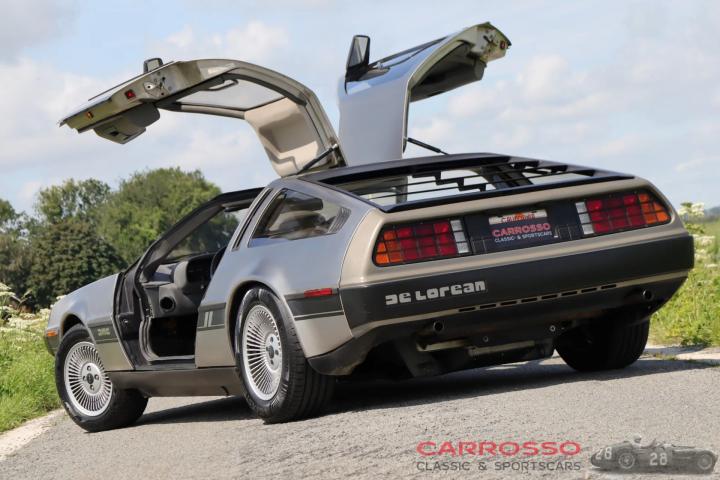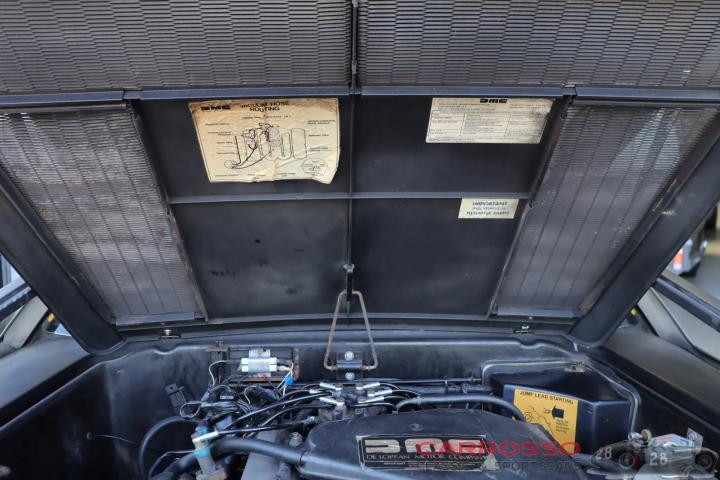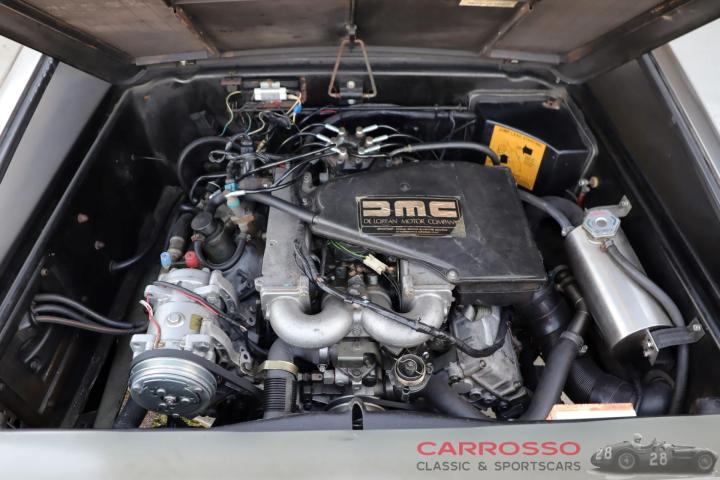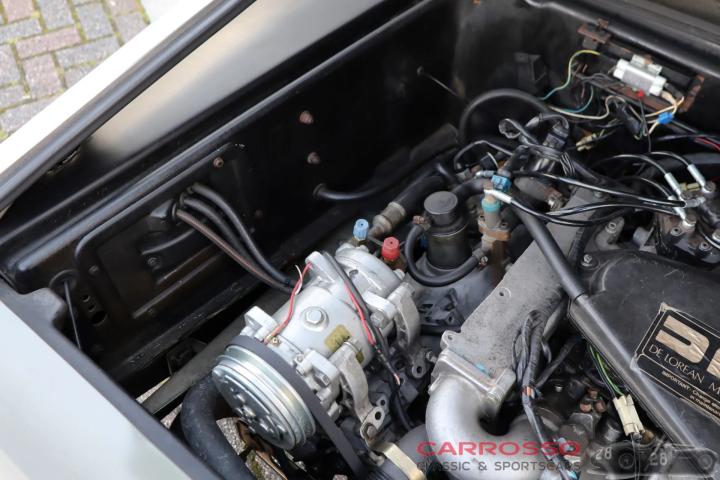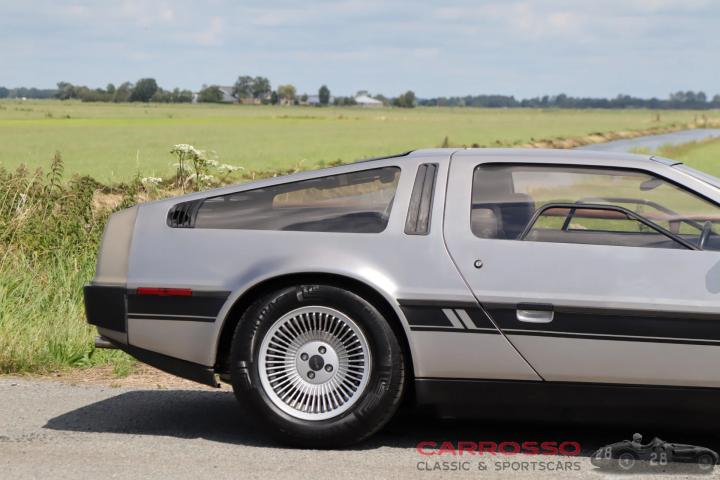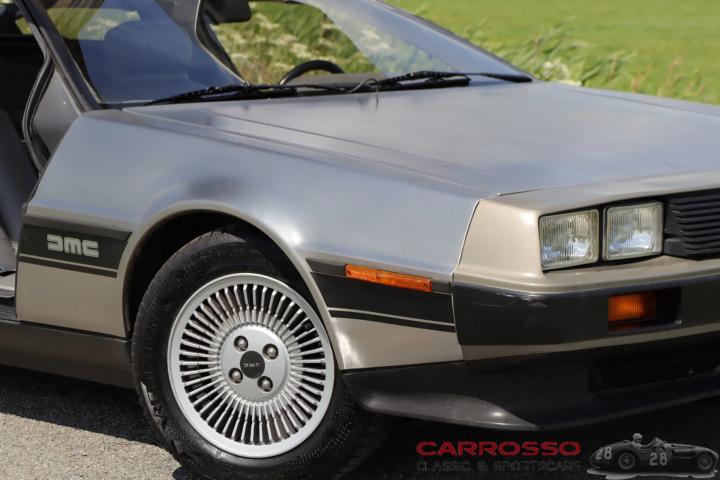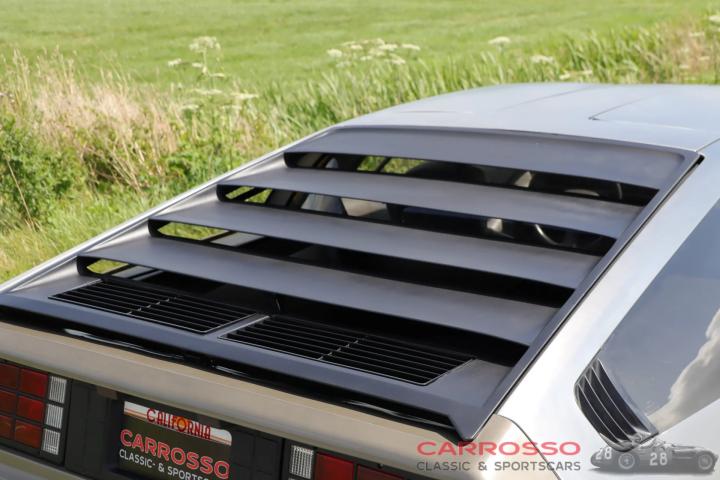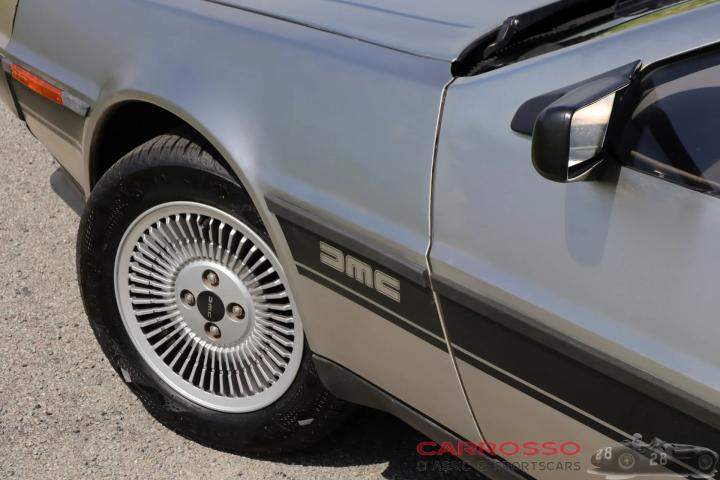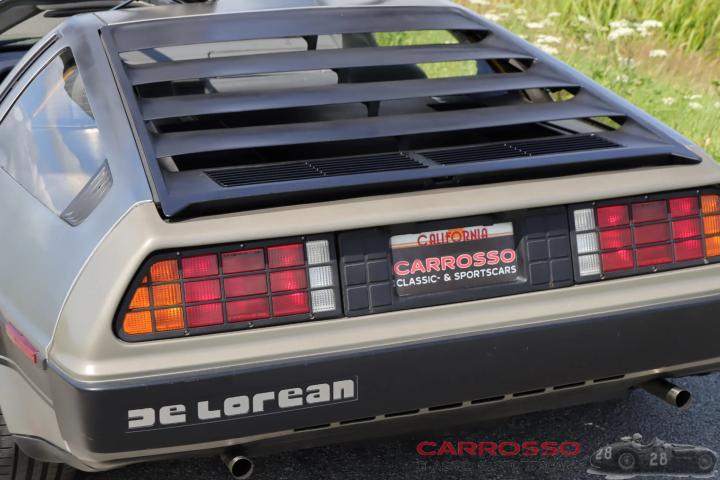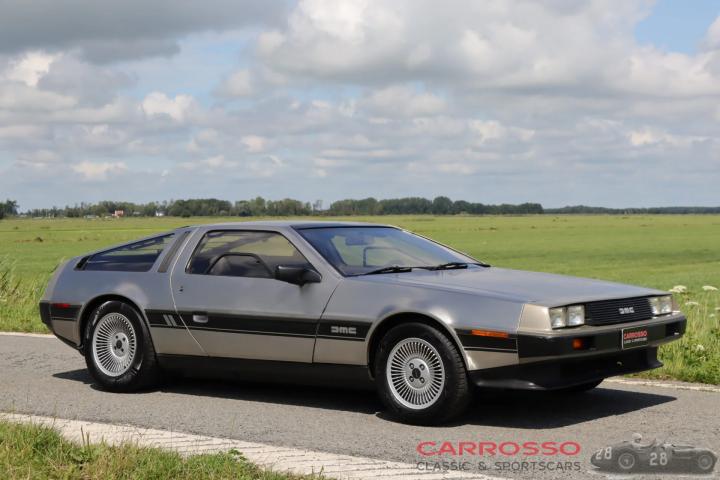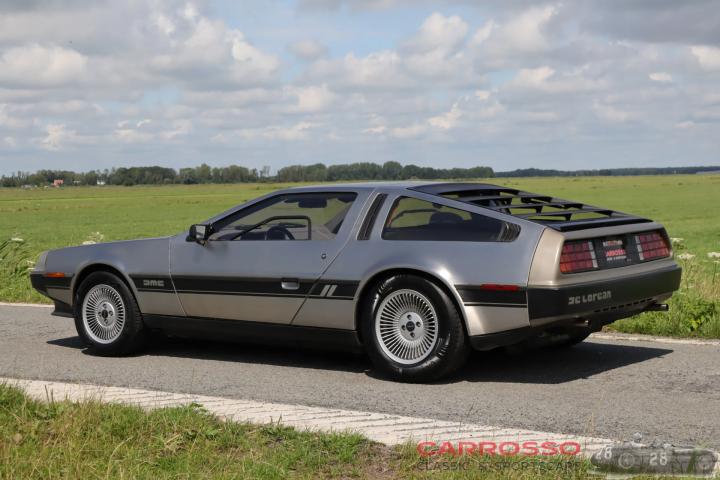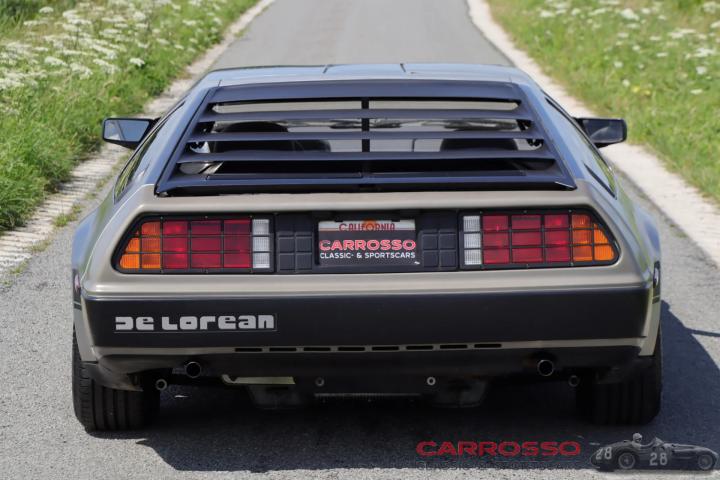
|
Karosserie
|
Coupe
|

|
Übertragung
|
Manual
|

|
Außenfarbe
|
Inox
|

|
Polsterei
|
Leather
|

|
Lenkung
|
Lhd
|
See for information in English down below
DeLorean DMC-12 gebouwd in oktober 1981 met handgeschakelde versnellingsbak. Misschien wel de meest legendarische auto ooit gemaakt met een roemruchtig verhaal.
- Sinds 1991 in Nederland
- 20 jaar in bezit van laatste eigenaar
- Handgeschakeld
- Documentatie aanwezig
- Zwarte DMC-striping (destijds originele dealeroptie)
Een DeLorean DMC-12, ontwikkeld door John DeLorean is het ultieme stijlicoon uit de jaren "80 waar boeken over zijn geschreven. Het merk heeft auto's geproduceerd van januari 1981 tot medio 1983. Het door ons aangeboden exemplaar is gebouwd in oktober 1981 en is daarmee een vroeg exemplaar die zijn leven begon in het zonnige Californië (Verenigde Staten). In 1991 is de auto geïmporteerd naar Nederland, waar hij in handen is gekomen van liefhebbers. De laatste eigenaar heeft de auto sinds 2004 in bezit. De auto ziet er netjes uit en rijdt goed. De DMC (afkorting voor DeLorean Motor Company) is nog altijd een tijdloos, opvallend model waarin een unieke rijervaring wordt ervaren. De geschiedenis van de auto geeft het rijden een extra dimensie. Onderdelen zijn goed verkrijgbaar en DeLoreans worden tegenwoordig vaak gekocht door beleggers en verzamelaars. Met name dit exemplaar met handgeschakelde versnellingsbak is een uitstekende keus voor de toekomst (Back to the Future)!
Algemene informatie over de DeLorean DMC-12:
DeLorean is wereldberoemd dankzij de film 'Back to the Future' uit 1985 waarin de auto als tijdmachine fungeert. Maar ook over de flamboyante eigenaar van het merk 'John DeLorean' en het ontstaan van de DMC-12 zijn vele boeken en series gerealiseerd. John DeLorean was een succesvol technicus en zakenman die zijn carrière had opgebouwd tot aan vice-president van het destijds wereldwijd grootste autoconcert General Motors. Mede vanwege zijn droom om een eigen auto te ontwikkelen stapte hij in 1973 uit het bedrijf. Zijn wens was om een hoogst speciale, betaalbare sportauto te bouwen die zijn tijd ver vooruit was en lang mee zou gaan. Wat volgde was wereldwijd nieuws. Het ontwerp komt van de hand van het Italiaanse Giugiaro en technisch verantwoordelijk was Colin Chaplin (oprichter van het Engelse automerk Lotus dat destijds zeer succesvol was in de racerij). Het futuristische ontwerp is breed en laag en de carrosserie is vervaardigd uit roestvrij staal. Wat verder opvalt zijn de vleugeldeuren en de motor die in het midden geplaatst is. Deze aluminium 2.8 liter 6-cilinder motor is afkomstig van Renault/Peugeot/Volvo.
Van de DMC-12, gericht op de Amerikaanse markt, moesten 30.000 stuks per jaar gebouwd gaan worden met een nieuwprijs van 12.000 dollar (hiernaar verwijst de 12 uit DMC-12). Na een moeizame zoektocht naar een plek om de auto te produceren is met behulp van de Britse regering uiteindelijk Noord-Ierland aangewezen. Een plek waar destijds veel werkloosheid heerste en een oorlog tussen protestanten en katholieken was. Dit gaf de productie van de DMC-12 een extra politieke dimensie. Vanwege een koerswijziging van de Britse pond was de uiteindelijke nieuwprijs ongeveer het dubbele dan vooraf werd aangegeven. Ondanks ca. een half miljard geïnvesteerd belastinggeld van de Britse overheid bleef het gebrek aan geld een probleem, wat uiteindelijk heeft geresulteerd in een faillisement van het merk na een productie van ca. 9.000 auto's.
DeLorean DMC-12 built in October 1981 with manual transmission. Perhaps the most legendary car ever made with an illustrious story.
- In the Netherlands since 1991
- Owned for 20 years by last owner
- Manual gearbox
- Documentation available
- Black DMC striping (original dealer option at the time)
A DeLorean DMC-12 developed by John DeLorean is the ultimate style icon of the 1980s about which books have been written. The marque produced cars from January 1981 to mid-1983. The one we are offering was built in October 1981, making it an early example that began its life in sunny California (USA). In 1991, the car was imported to the Netherlands, where it came into the hands of enthusiasts. The last owner has owned the car since 2004. The car looks clean and drives well. The DMC (short for DeLorean Motor Company) is still a timeless, striking model in which a unique driving experience is experienced. The history of the car adds to the driving experience. Parts are readily available and DeLoreans are often bought by investors and collectors these days. In particular, this one with a manual gearbox is an excellent choice for the future (Back to the Future)!
General information about the DeLorean DMC-12:
DeLorean is world-famous thanks to the 1985 film ‘Back to the Future’ in which the car acts as a time machine. But many books and series have also been realised about the brand's flamboyant owner ‘John DeLorean’ and the creation of the DMC-12. John DeLorean was a successful engineer and businessman who had built his career up to vice-president of the then world's largest car company General Motors. Partly because of his dream of developing his own car, he left the company in 1973. His desire was to build a highly special, affordable sports car that was ahead of its time and would last a long time. What followed was worldwide news. The design came from the hand of Italy's Giugiaro and technically responsible was Colin Chaplin (founder of British car brand Lotus, which was very successful in racing at the time). The futuristic design is wide and low and the bodywork is made of stainless steel. What else stands out are the wing doors and the engine placed in the centre. This aluminium 2.8-litre 6-cylinder engine comes from Renault/Peugeot/Volvo.
Of the DMC-12, aimed at the US market, 30,000 units per year were to be built with a new-build price of $12,000 (this is what the 12 from DMC-12 refers to). After an arduous search for a place to produce the car, Northern Ireland was finally designated with the help of the British government. A place where unemployment was high at the time and there was a war between Protestants and Catholics. This gave the production of the DMC-12 an extra political dimension. Because of a change in the exchange rate of the British pound, the final new-build price was about double what was indicated beforehand. Despite about half a billion invested taxpayers' money from the British government, the lack of money remained a problem, eventually resulting in the brand's bankruptcy after producing about 9,000 cars.
